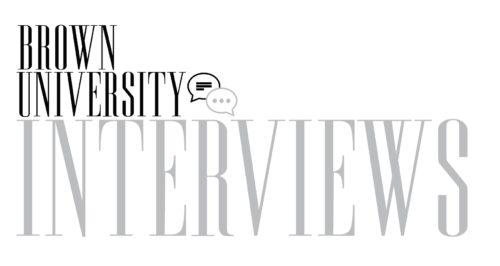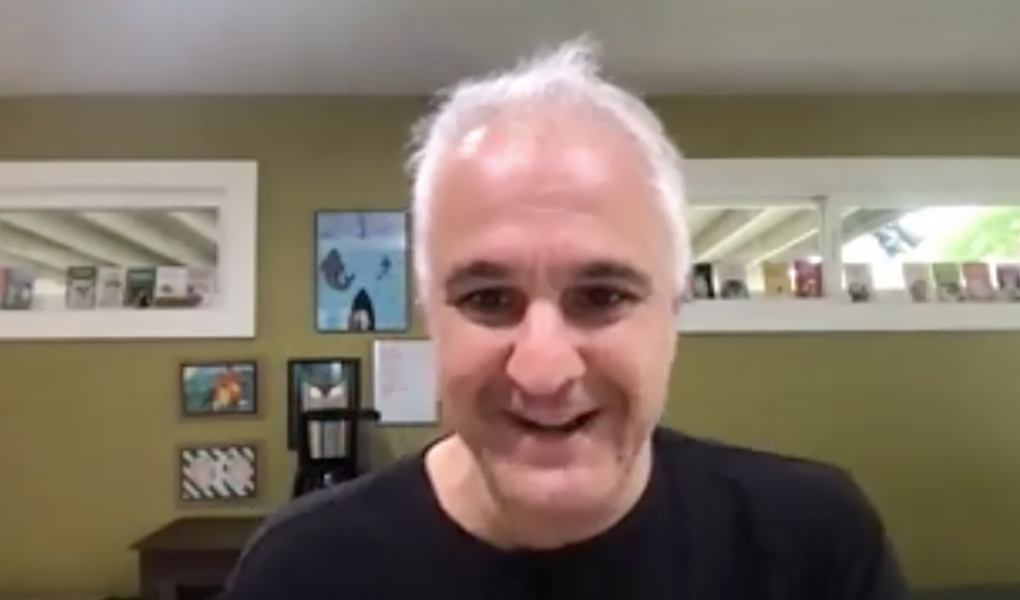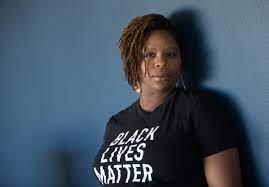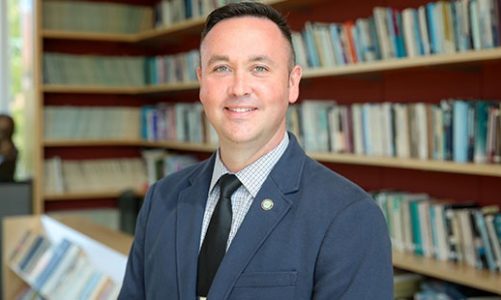
Dr. Peter Boghossian is the Director of the National Progress Alliance (NPA), a nonprofit that aims to combat illiberalism and censoriousness. He is also a founding faculty member of the University of Austin. He and two other scholars, Helen Pluckrose and James Lindsay, co-created the “Grievance Studies” affairs, also known as “the Sokal Squared” project, in which the scholars submitted bogus papers to academic journals in disciplines such as gender studies, fat studies, and sexuality studies to call attention to what they believe was a growing trend toward ideologically-based scholarship, rather than evidence-based scholarship.
Dr. Boghossian is currently on his “Reverse Q&A University Tour,” in which he visits various universities and asks audience members about their experiences with Critical Social Justice (“wokeism”) on campus. On May 12, 2022, Dr. Boghossian was scheduled to visit Brown University but Brown administrators canceled the event.
Danielle Springer: Leda, you were close to the situation at Brown. Why was the event canceled?
Leda Hamlin: Basically, we had partnered with a student fellow, Jedry, from The AHA [Ayaan Hirsi Ali] Foundation. He was able to confirm our event at Brown RISD Hillel. It was confirmed a couple of times by email. Then, on April 25th, Jedry started to advertise the event around the campus with flyers and a Linkedin event. A few hours after he started doing that, he got a call from an administrator at Brown University who was asking questions about the event. Jedry answered the questions, and she made a point to talk about how she really wanted us to use the approved Brown logo on our marketing materials.
It was a good conversation. Jedry felt fine about it. And then the next day, April 26, he received an email from Brown RISD Hillel stating that they can no longer host our event. We were very surprised by that because it was about a couple of weeks before our event. Jedry obviously went to the event space and asked why they were canceling the event, as we had it confirmed for over a month.
At that point, they gave us three different reasons. One of the reasons was, “Sorry, there are too many other Hillel events.” And then the second reason was that they were excited to offer the room for the study breaks. And Jedry pushed back and said, “Well, we confirmed our event before Brown even talked about the schedule for study breaks.” The next day, we got a phone call request from the executive director at Brown RISD Hillel to have a conversation with myself, Cara at the AHA Foundation, and the AHA student fellow, Jedry. So we had a lengthy conversation with the executive director about the fact that they canceled the event. His third reason was that they made a mistake internally and that they should never have put us on the calendar. He really wasn’t budging. We were very disappointed.
But at the end, Cara and the student fellow were talking about it from AHA perspective. Peter and our team were talking about it from our perspective. And it didn’t make sense for us to travel to Brown to have the event, unfortunately, and we were all so disappointed.
Peter Boghossian: I mean, they should just be honest about it. Whatever the reason is, “We don’t think our students can handle a conversation about something controversial…” Being honest. Or “We think this is going to harm students of color, minorities, homosexuals, midgets, whatever; some kind of great harm is going to come to somebody,” which they didn’t say. So they lied.
Truly, we have hundreds of hours of us doing this. This is the least controversial thing you could ever imagine. It is only controversial if you think that not having the right answers to moral questions is a problem. And if you think that dialogue and discourse could cause someone to revise their belief about a moral position that you’re advocating. If you believe that, then of course, this is an insane controversy. But if you believe that people should be free to explore ideas and reflect on their beliefs and examine the evidence for why they believe what they believe, not only is this not controversial, it should be mandatory.
DS: What reactions have you gotten from other schools?
LH: Well, Yale canceled us before we even started the planning. And they just said it doesn’t comport with their values. So they were kind of honest about it.
PB: I believe that. I believe it doesn’t work with their values. I believe they don’t want discourse, dialogue, and thoughtful reflection on issues. So they’re honest. It’s why Brown doesn’t want it, and it’s why Yale doesn’t want it. And it’s why Berkeley didn’t want it. Because they want to force a very particular narrative, they want people to go to school to adopt certain moral conclusions. Be honest about it. Just tell everybody that.
LH: Berkeley tried to cancel us two different times. And it was a direct result of the fact that Peter Boghossian was going to be on campus having this discourse on free speech. But we paired up with the Berkeley College Republicans, and they really fought back. And they said [to Berkeley administrators], “We are going to sue you if you don’t allow this event to go on.” Eventually University of California, Berkeley relented and allowed us to have the event.
PB: He was not taking any shit. That guy was incredible. Basically, he just kept threatening to sue. And I think [the administrators] capitulated, right?
LH: They did. They said, “Go ahead. You can have the event space.”
DS: What is the general response you get from the people that attend your events?
PB: It is overwhelmingly positive – even with the people who are in the orbit of the ideology. Everybody has a chance to speak. I don’t shut up anybody. The response has been overwhelming. People will voice different concerns to me in private. There was a guy with a Black Lives Matter shirt who came. He did most of the speaking at the event. I didn’t say anything. We just listened to him.
DS: What are the things your attendees have been sharing with you? Do you get a sense of a general pattern among the issues on college campuses that audience members have mentioned?
PB: One of the things I learned blew my mind, actually. I asked, “Do you feel free to speak your mind in a classroom? What makes you feel free to speak?” It happened two different times – someone replied, “Well, I can speak freely if it’s a conservative professor. “ And I said, “Did the professor tell you he or she was a conservative?” He said, “No.” I said, “Do they assign conservative points of view?” He said, “No.” I said, “Well, how do you know the professors are conservative?” And he said, “Because they teach both sides of the issue.”
It just totally blew my mind. And I said, “You realize that, until like ten years ago, that was what liberals were doing. That was a liberal idea.” And the idea undergirding that was, “We have better reasons for it.” Even if they weren’t “fair” to both sides of the issues, [liberals] said, “This is what a thoughtful person on this side would think.” Now if someone does that, they’re viewed as a conservative. That is complete insanity. For years, I’d ask gender studies scholars, “Did you read Martha Nussbaum’s critique of Judith Butler?” I probably asked that question literally 5,000 times, and I have never had a single person who studied gender studies say “yes” to that. They don’t teach that because they don’t want students to know the other side of the issue. But this was a really interesting learning experience for me — to see how the culture has changed so dramatically in the last few years.
DS: What is a “Reverse Q&A” and why did you choose this format for your event?
PB: Well, the event’s technique and methods evolved dramatically, but the intent was the same. You see Q&A’s everywhere – the professor goes on the stage, and people would ask questions. I wanted to invert that and put someone else on the stage and ask them questions.
You’d ask them to provide their reasons, and you’d see if people would move or not based on the questions you asked them and the reasons other people gave. And I would say, more often than not, someone moved.
Here’s the other thing that was fascinating about this: When we had claims in the domain of Critical Social Justice, A.K.A. “Wokeism,” such as, “Should trans women be allowed to compete in women’s sports?” We asked the people who said “strongly agree” what would cause them to move, not to “strongly disagree,” but just to “agree.” Absolutely nothing. But when we ask people on the other side, invariably, they would give some reason. But the ideology has infused itself and overwritten rationality in one’s brain, so that the more one is beholden to the ideology, the less likely it is that one is even willing to consider what it would take them to revise their beliefs. That is because the moral mind has overridden the rational mind.
DS: It almost seems faith-based, the level of conviction that they have.
PB: Right. They think their conviction makes them a better person. In this sense, the analog to faith is “the system.” Okay, well, give me an example in “the system.” I probably asked at least ten people ten times: “Give me an example of a current law that is racist.” And I had to keep saying “current,” because people started repeating old laws, like miscegenation laws. Today I have yet to have a single person answer that question. No one told me it was an illegitimate question either; they just couldn’t answer it.
DS: How does this approach relate to the concept of “street epistemology”?
PB: “Street epistemology” is from my first book, A Manual For Creating Atheists. The idea is that you take epistemology – what you know and how you know it – out of the universities, and you put it on the streets. And then, you use that as an opportunity both to help people to figure out whether or not the reasons people have for their beliefs justify their confidence in those beliefs, and to help you figure out if they know something you don’t know in order to help you know it too. And not only to know it, but to know the processes of reasoning.
DS: When I’m on campus, it seems like the students themselves are the ones that are really driving this close-minded culture. I always wonder if administrators feel similarly and are encouraging it, or whether they are just capitulating to the students? Do you think we can fix this?
PB: It is impossible for me to give an answer because we have created a culture of fear where everybody is terrified and in which nobody can be honest with each other. And it’s even worse than that. We’ve created a culture in which everybody’s pretending about things. They’re pretending things about certain races, genders, and pronouns. So, I really don’t know the answer to your question.
But I think there are some ways to solve it. As long as administrators’ salaries remain extremely high, then they have a vested interest in yielding to student demands, no matter how insane they are. Another one is to stop giving to your alma mater because it’s not the same school that it was ten years ago. It should be the easiest ask in the world because you’re not asking anybody for money — you’re asking them to not give money.
The other thing is just a parenthetical: one stroke of Joe Biden’s pen that relieves student debt is a problem. The problem is if Biden does that, then all of these disciplines that are in “make-believe land” will be utterly disincentivized to tether themselves back to reality. It doesn’t matter what [the National Progress Alliance] does or what anybody does. And then the problem will get far worse because they already have jobs for life. They’ve already created DEI [Diversity, Equity, and Inclusion] offices with bias response teams in search of tasks. They are looking for reasons. So you already have an infrastructure in place that makes any kind of honesty and sincerity extremely difficult.
DS: You were a professor of philosophy at Portland State University for a decade. How do you think the field of philosophy has been affected by “Wokeism”?
PB: This is one of the main reasons so many of my colleagues hated me. I think there are certain things that you can do to take you away from reality. I think the most conspicuous example of that is in fantasy-based martial arts. If someone practices martial arts for a long time, that’s worthless. After a certain time, you realize that the things that you’re doing are not going to help you win a fight. So basically, you become a dick, because you know that what you do doesn’t work, and you’ve put so much time and effort into it that you have to make up for it somehow. The bowing, the ritualistic performances. I think philosophy is similar to that. In The Believing Brain, Michael Shermer says something that I personally believe is the greatest insight in all of critical thinking: the smarter the person, the better they are at rationalizing. Not reasoning but coming up with good reasons for bad conclusions. And if you get a group of philosophers who do that, it’s even worse. So they’ve become, not the gatekeepers of reason, but the mouthpieces for the dominant moral orthodoxy.
DS: Can you expand on your criticisms of the current philosophical discipline?
PB: I’m paraphrasing here, but the philosopher Dan Dennett has said that philosophy has largely become a discipline in which a lot of smart people are working on problems of no abiding significance. People are wrestling with utterly asinine and idiotic ideas like, “How many grains of sand does it take to make a heap?” It’s a completely idiotic question. So, I think in many cases, the discipline of philosophy as it’s been institutionalized in the Academy has made people care about the wrong things. And if you do that long enough, you do not only a kind of self-harm, but you delude yourself into thinking that the intellectual work you’re doing has more important consequences than it does. Fortunately, I was able to escape that. Now, the education training I received is very useful because it teaches you stuff like studies and research methods. I found that stuff fascinating.
Sometimes there are just no answers to questions. And some questions may seem profound to you, like, “How many angels can dance on the head of a pen?” But just putting a question word in front of a bunch of other words doesn’t make it legitimate and doesn’t mean it hooks onto anything in reality. So, you have a lot of really smart people cranking out a lot of research that just sits utterly wasted.
We have to really have an honest conversation about, among other things, what the purpose of the university should be, what the purpose of philosophy should be, and whether we are serving that purpose. And about how we should deal with dissent. That’s why Peter Singer, the Australian ethicist, founded the Journal of Controversial Ideas. People were just too paranoid to speak openly.
DS: Do you notice differences between the students you encountered when you first began teaching in 2010 and the students you teach now?
PB: No, but I have noticed a difference in the kinds of issues my colleagues care about. And I’ve noticed that their work has become explicitly ideological. For example, there is something in philosophy that was [called] the use-mention distinction. So, you can mention a term without using it. The famous example word is the N-word. But when you collapse the use-mention distinction, you can’t even mention a term. They claim that it is [the same as] using a term. And not only is that just wrong, it’s just fucking idiotic. Yet, we have people pushing this idea as a kind of an application of postmodern principles. And they’re doing this either to deconstruct elements of the discipline, or they’re doing this out of whatever sense of fairness that they have. So I haven’t noticed that the students have changed. I’ve noticed that the professors have changed, and the criteria for promotion and tenure have changed.
DS: Are there certain people with whom a conversation about controversial ideas will never bring about change? Are there people, on either side of the political spectrum, who are “too far gone”?
PB: I think you need to be super hopeful. I’ve never given up on anybody. There was a guy yesterday. He said all this pretty nasty shit to me. I actually loved it. I thought it was great feedback because anybody is free to say anything. I don’t take these things personally; I want to be a better teacher, and I want to figure out what’s true. But he stayed for three or four exercises and was thanking me.
Belief change doesn’t come instantaneously. It takes a long time. So I don’t really think anybody’s too far gone. It might seem like they’re too far gone in the moment, but these ideas take time to percolate. You have to be in a cultural milieu to convince yourself of something that’s pretty silly or “harmful nonsense.” I added to a term in the religious literature, called an “ideologically motivated moral community” – in which we have moral communities that have factual statements – and people think that if they believe [these statements], it makes them better people. So part of the reason for ideological entrenchment is that people believe that believing a proposition makes them a better person.
DS: When I talk to people who aren’t that involved in the cultural and political discourse, they often say something like, “Does it really affect you? Why do you care if the ACLU wants to call mothers ‘birthing people’?” What do you say to that, why should we care?
PB: If one’s starting assumptions are incorrect about whatever issue – particularly about issues of abiding significance – then you will construct a system, a framework, and a way to live your life outside yourself that you think will be bringing about your flourishing and the flourishing of your community. But it won’t because it’s not true. And It makes it more difficult to bring about your own flourishing if you’re basing your beliefs on fundamental tenants that are false. So, you have to start your belief life with things that are true.
*This interview has been edited for length and clarity.




